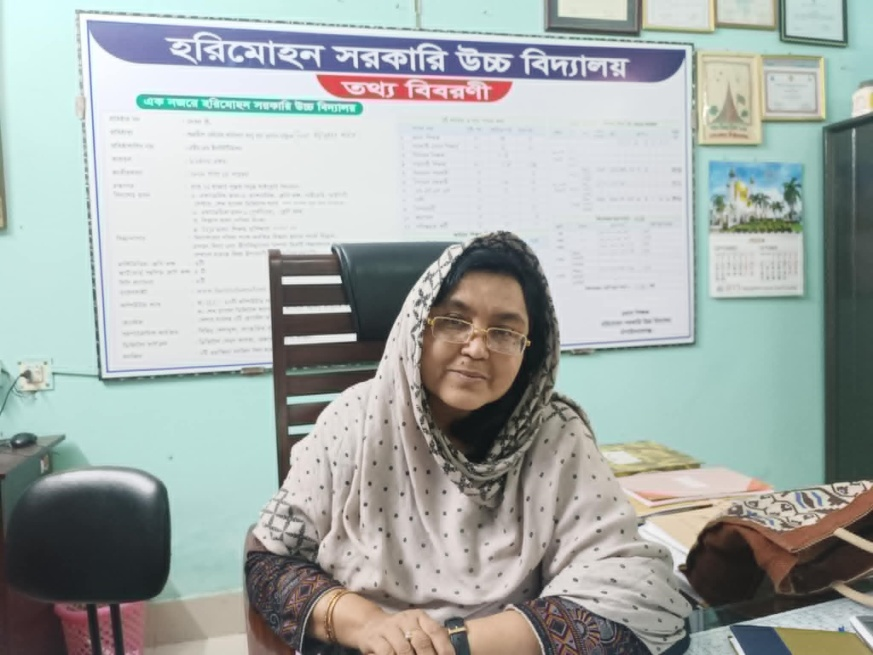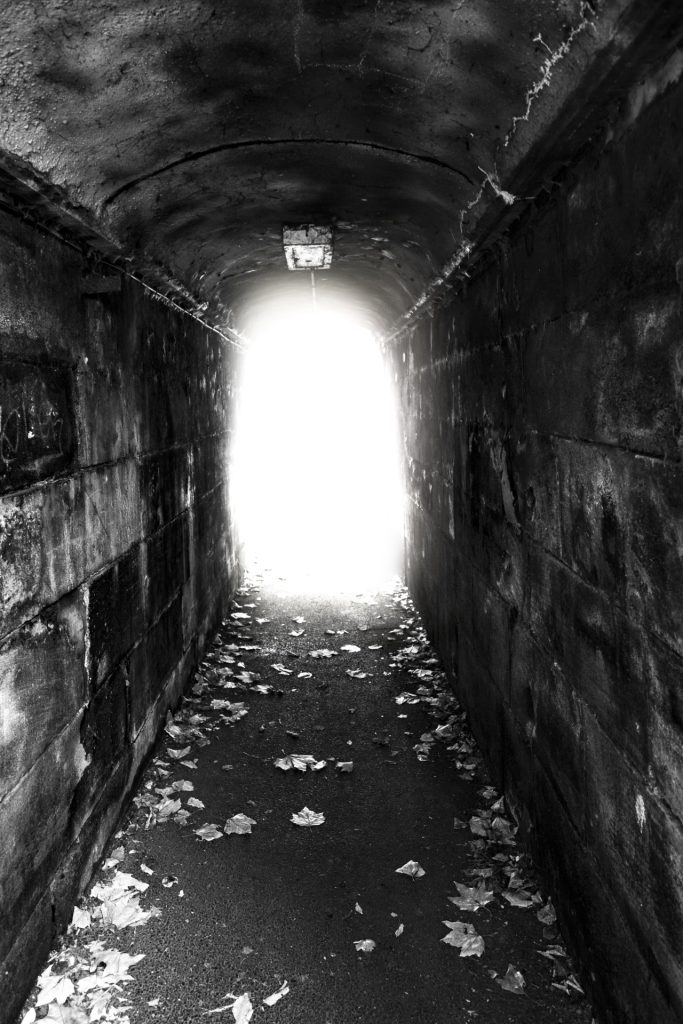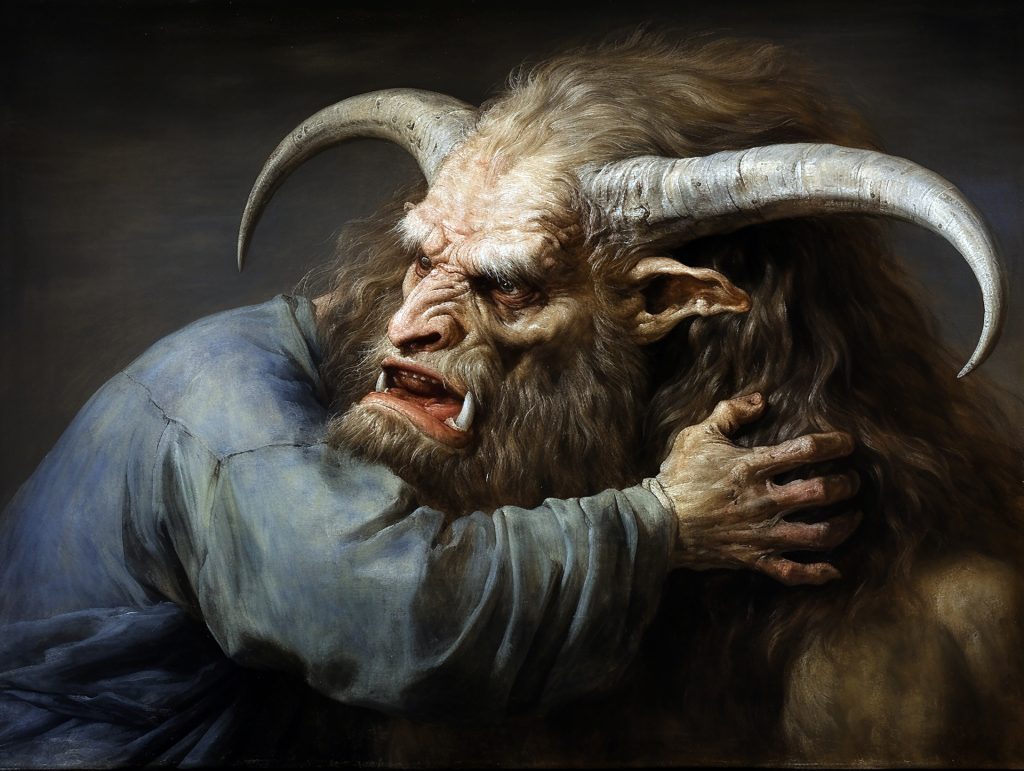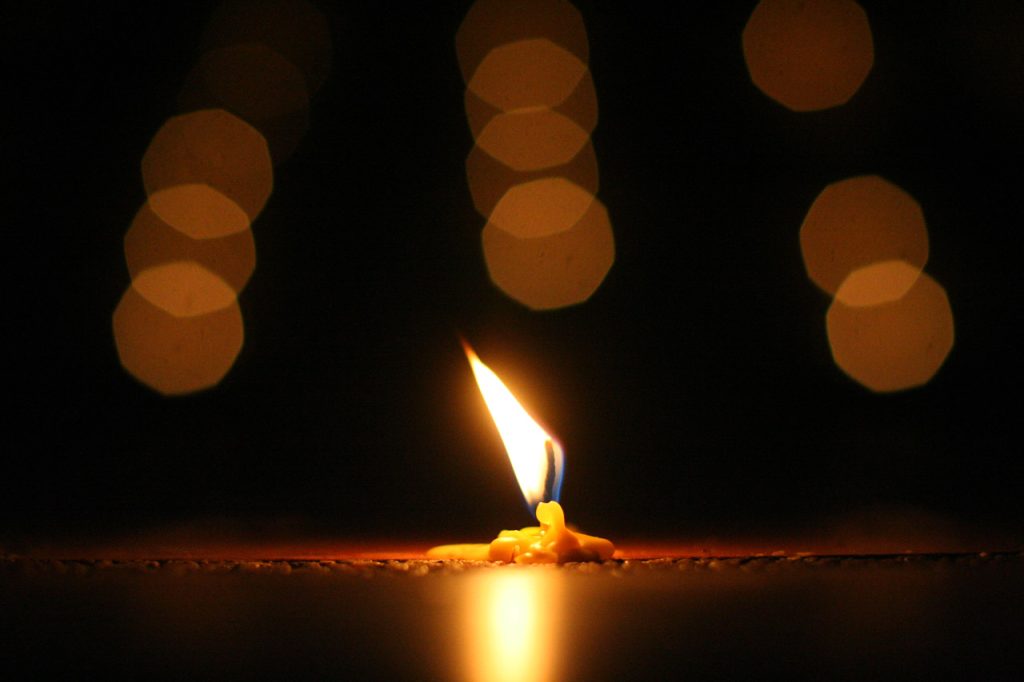


Rubina Anis is the Headteacher of Harimohan Government High School, Chapainawabganj, Bangladesh. She has obtained her honors and Master’s degree from the Department of Arts and Crafts, Rajshahi University.


Freedom’s Embrace
In the quiet dawn, where dreams reside,
Freedom dances on the wings of the tide.
Her touch is light, yet strong and true,
A gift for all, for me, for you.
She whispers peace in every land,
Binding nations hand in hand.
No chains to break, no walls to build,
With love and hope, the heart is filled.
Respect blooms in Freedom’s light,
Uniting souls, both day and night.
In every word, in every choice,
She lifts the world, gives all a voice.
For Freedom thrives where love is found,
Where hearts are free, unbound, unbound.
In unity, the world can see,
That peace and love are truly free.
So let us cherish, let us guard,
This gift so precious, yet so hard.
For in her arms, the world will find,
A future bright, for all mankind.
Maja Milojković was born in 1975 in Zaječar, Serbia. She is a person to whom from an early age, Leonardo da Vinci’s statement “Painting is poetry that can be seen, and poetry is painting that can be heard” is circulating through the blood. That’s why she started to use feathers and a brush and began to reveal the world and herself to them. As a poet, she is represented in numerous domestic and foreign literary newspapers, anthologies and electronic media, and some of her poems can be found on YouTube. Many of her poems have been translated into English, Hungarian, Bengali and Bulgarian due to the need of foreign readers. She is the recipient of many international awards. “Trees of Desire” is her second collection of poems in preparation, which is preceded by the book of poems “Moon Circle”. She is a member of the International Society of Writers and Artists “Mountain Views” in Montenegro, and she also is a member of the Poetry club “Area Felix” in Serbia.
SIDE EFFECTS
Back in the slanting, tilted days
we tore great chunks off each other
and then crept slowly apart, not looking back,
like sidling crabs over cooling sands
and wrote with bloody fingers on the walls
words that still drip down to acid puddles.
I wish I could cry in my sleep
and wait for the dreams to come,
but I’m none of those thousand phantoms:
not a prisoner in love with his jailer
nor a blind man married to an angel;
just a broken rung on the ladder,
a handful of scattered shells and driftwood
when the teasing tide recedes,
as if stuck by a hotel pool
two steps from the bar and just a drink from Hell.
SINCERITY
I wrote love poems
on the back of my hand,
always meaning
to put them on paper,
but the ink wore out
or was washed away
just like the emotion.
CONSTANCY
Some things a woman says are bridges
raising grief over happiness.
Once, I could only be satisfied
if she was always there, then just a touch
was enough, then the sound of her voice
and finally just the thought of her.
A face can grip your mind like unrelenting tongs
and wipe out everything else,
like a barrage of hail strafing
your gently swaying fields;
you wouldn’t find fire down a well
or dew on a lightning bolt,
so don’t hope for something more.
THE COCOON
I found a cocoon made of twigs
somehow stuck together in a lattice.
I don’t know why, but it never opened
and many years later I went away
leaving the cocoon behind on a shelf,
while whatever creature lay inside
never learnt what it truly was.
S.C. Flynn was born in a small town in Australia of Irish origin and now lives in Dublin. His poetry has been published in more than a hundred magazines around the world. His collection “The Colour of Extinction” (Renard Press, October 2024) was The Observer Poetry Book of the Month. “An Ocean Called Hope” (Downingfield Press, May 2025) is forthcoming.
Crazy Eye
They looked at each other, blank-eyed, after the delivery van drove off, outside.
What’s the matter. Why the look?
I told you already. I don’t like this.
Don’t like this? Don’t like what? The TV’s here, right? Look at it. There it is. What more do you need?
It still bothers me I never heard of the company you said you ordered it from.
What? Why? You said you were nervous it’d never get delivered ‘cause you never heard of the company. I could even see that, maybe. But—here it is. What’s the big deal now?
They gazed at the TV on the floor between them.
I don’t know, I—hey listen, I think anybody hit in the face with a name like the “Regulation TV set factory out West Bruce Toothpull” would think that’s fake.
Uh. Okay. So the name’s odd. But—here it is.
Yes, I know. But—oh, never mind.
No no no, wait. Here it is. It’s plugged in. It’s powered up. What were you going to say still bothers you? Come on.
Okay, okay. I almost think we shouldn’t have it, that it shouldn’t be here.
Why?
I guess because I—think its dirty—like something I can’t touch ‘cause I don’t know where its been!
Instant’s stunned silence, then, Jesus Christ, that’s crazy! How can that be?
Don’t pick at me now. You forced me to say that! I wasn’t going to say it, but you forced me—so don’t look at me that way!
Okay, okay—I didn’t mean—
Oh yes you did. I always know what you mean! You got me started now, so—shut up and listen! First, the name of the company. You see it anyplace on any paperwork we got?
I don’t know, maybe—I—
Never mind maybe. The answer is no! Next—did you see the van it came in?
Okay, sure. A big white van. So?
That’s the kind of van you always called a kidnapper van. Remember?
Huh? What—I never heard that term—kidnapper van. What is it?
Oh, again, a nice pat convenient answer. I swear, you’re so stubborn.
Stubborn? Really? When I’m simply honestly saying I don’t remember things the way you do? I just—just don’t know what a—kidnapper van, or whatever you said—I just say I don’t know what that is, and—how is that being stubborn?
Okay. Maybe not stubborn, but—what you’re admitting to can’t be true, because I can see and hear you as clear as a bell, telling me all about “kidnapper vans” way back when. Why have you decided to get your back up and lie about it to me, today?
Wait—hold it, this is going too damned far!
Really? No! I’llgrant you that liar may be just a hair too strong, maybe you’re just forcing yourself to believe you don’t remember to keep yourself clear of being an actual liar, but—
What? That’s crazy!
No, no! Never mind—pay attention! When you used that term back then, I asked you what a kidnapper van was, and you told me clear as day. You said—
No! Can’t possibly have happened! I’ve never heard of such a thing!
Hold it, don’t cut me off—yes you did, because you explained that a kidnapper van is a van of one blank color : mostly white or black—other colors are rare : with no windows in the sides or in the back door and no—
No! Can’t possibly have happened! I’ve never heard of such a thing!
DAMN it don’t talk over me! Uh—okay, a van with no lettering of any kind and even sometimes with blanked-out license plates, this all being so, so that—
No! Can’t possibly have happened! I’ve never heard of such a thing!
—the victim can be snatched, and thrown in the back there, and then with the doors locked the kidnappers can drive away to the secret site of their choice to do what they wish to the victim in secret, and—
No! Can’t possibly have happened! I’ve never heard of such a thing!
—and if even someone saw them grab the victim and take off, there’d be nothing unique about the vehicle to tell the police to look for—
No! Can’t possibly have happened! I’ve never heard of such a thing!
—and you capped all that off with some kidnappers even take the van to a scrap dealer for crushing, once they’ve used it in the kidnapping grab and—
No! Can’t possibly have happened! I’ve never heard of such a thing!
—then they can proceed with the rest of their plan for the use of the victim for this that or the other—and then you said—
No! Can’t possibly have happened! I’ve never heard of such a thing!
—you said that was all that there was to be known ‘bout a kidnapping van.
No! Can’t possibly have happened! I’ve never heard of such a thing!
But, the description I’ve just recounted, I got from you way back then!
No! No! I’ve never heard of such a thing! What are you—you are calling me a liar?
Uh—isn’t it possible you may just have forgotten what it is? That wouldn’t mean you are a liar. Perhaps a bit forgetful, but—
What?
—but no way could you be considered a liar. That is, if you claim to have simply forgot.
{wink}
What? NO! I did not forget, and am not a liar, both. Both things, and both, and—
Hold it HOLD it just one more thing—and that is why I fear this damned TV—I fear what may have been done to it—and what it may do to us in revenge if we let down our guard!
{crazy eye}
Step back—
{crazy eye}
Dear God!
Look down, up, away, and into straight into pierce probe prod and stab-b-b-b w’, the n say softly as humanly possible—Let’s talk about something else now, okay?
Okay sure. If you’ll admit you believe me.
—NO but I never no b-b-b-ut I it’s always but I this, and but I that—Let’s talk about something else I tell you say one damned more syllable—
Ah. Okay. Sure. I believe you.
Good. Deep silence in-tween in-tween, deep silence—both then turned and left the tense airless room after one pulled the plug on the no-name TV and pushed it into a corner. Over there in the corner it sits to this day under stuff come on top more and more and so under that stuff on top of it there, under it all, there it sits alone; the dark room
A Miss At Twilight
They were called marbles.
They were called reasons.
I am never where I am
when I need to be.
When “I’m sorry” is necessary
or “I’m leaving” is the only response.
I fear life is destructible
and consolation
is a round-trip ticket
to go round and round.
It’s in your eyes.
Your eyes looking into mine.
Counterfeit glances
through a snow globe,
leaving tiny droplets
behind on the surface,
soon to gather and stain.
Gather and stain.
Suffering
is a repeatable offense,
a language
the soul whispers to the heart
on a dark, lonely night
with darker contemplation
to come.
To gather and stain.
Broken and repellant
in a bookstore
that sells small bags of marbles
I see
Cat’s eyes and beauties.
Tragedy radiates from them,
they have no function,
except to be.
Except to be.
Reason teaches us
that
to be completely forgotten
is to climb into ourselves
and be put
in another’s pocket.
I am a miss at twilight.
At dawn
I separate myself from the chasm.
Somewhere in between
you have a thought of me
and I tremble
involuntarily
like
a visitor
at a cemetery.
The Woman I Need
I am as seaweed on a stone
either clinging from the last pass of water
or anticipating riding
on the next wave.
I am a silhouette of myself at times.
Burdened
with modern unforgiveness,
holding my hand over
a candle burning
through
one day from another.
If one is to dream
love is an extravagance,
yearned
from the bedroom
while
experiencing
the cold nights of winter.
I can hear the seams
losing strength.
An allusion
bearing the solemnity
of difficult questions
I ask myself.
And music
provokes reminiscences,
devoid
of a predicate.
What remains
are desire’s
bittersweet
scars.
Experiences,
are dangerous grounds,
abandoning oneself,
abandoning
what is necessary
to understand
tragedy’s consequences
or
contradiction’s demands?
I
yearn to foresee,
to weave a net
across
the enigmas
and dissipate
the contrived
influences.
There is a pier
where beneath,
the waves splash in rhymes.
Every Sunday at dusk
a woman
with long brown hair
stands at the furthest end
and smiles
every time a cat
strolls along the
guardrail.
I lose interest in myself,
while
watching that woman,
that woman.
That woman
is the woman
I need.
Philip received his MS in Psychology from Simon Fraser University, Vancouver, Canada. He has published Five books of poetry: Mirror Images and Shards of Glass, Dark Images at Sea, I Never Finished Loving You, Falls from Grace, Favor and High Places, and Forever Was Never On My Mind. Three novels, Caught Between (Which is also a 24 episodes Radio Drama Podcast https://wprnpublicradio.com/caught-between-teaser/), Art and Mystery: The Missing Poe Manuscript, and Far From Here. Two plays, The Apparition and The Poet’s Masque. Philip has a column in the quarterly magazine Per Niente. He enjoys all things artistic.
Too Many of Us . . .
I hear a shaking of wings.
When I open my eyes, what I see
is what I see no more.—Cavafy
The gentle ones retreat into the dark
without a flourish.
They leave behind a smile
naked and surprised.
Their kind eyes are embarrassed;
death is not only tragic; it is tactless;
it reminds of everything the living want to forget.
The line of footprints in the sand
stops here . . .
But how can this be?
As though a hawk
(or an angel, if you believe in angels)
fell, seized the walker with its talons,
then soared away with him into the sky.
for Carlos Ramirez, Stephen Mackin, Don Brennan, Stephen Kopel, Iván Arguëlles, and Marvin R. Hiemstra
Christopher Bernard is a San Francisco poet, writer, and essayist.

First of all, we’re sharing an announcement from contributor Howard Debs about the upcoming virtual course Writing from Atrocity to Healing: A Multi-Genre Virtual Workshop.
This four session virtual workshop will provide poets and writers of all levels, genres, and backgrounds with the tools to write from their experiences with atrocity, the traumas produced by atrocity, and the healing (personally, communally, nationally) your words can make of it. Featuring Ellen Bass, Jacqueline Osherow, Joy Ladin, Geoffrey Philp, Jehanne Dubrow, among others. Moderated by Andrew McFadyen-Ketchum. Four consecutive weekly sessions (January 7, 14, 21, 28 ).
Each session includes content from the forthcoming book The Wounded Line: A Guide to Writing Poems of Trauma (“ethical concerns and helpful craft elements for writing poems [and other writing] that engage with trauma”) presented by the author Jehanne Dubrow, and session related writing prompts and open review of selected flash fiction, poems, etc. as submitted by attendees. Each registrant receives New Voices: Contemporary Writers Confronting the Holocaust suggested readings from which coordinate with the workshop series. Session recordings will be made available to registrants unable to attend specific sessions upon request. Registration fee includes all four sessions. Limited registration closes December 30. Presented by the New Voices Project, a 501(c)(3) nonprofit organization. newvoicesproject.org and you may sign up for the workshop here.
Now for our issue’s theme, Plumbing the Depths. We look into the varied aspects, not always visible at first glance, of people’s interior and social lives, human societies, the natural world, and our artwork, history, and culture.
Chuck Taylor’s story reminds us about the complex layers of each person’s life, that we are more than our most obnoxious moments. Paul Tristram explores everyday human feelings and interactions in his “street poetry,” claiming them as a worthy literary subject.

Gabriel Kang speaks to the important issue of men’s mental health by illustrating men’s struggles passed down through generations. David Sapp delves into Middle American family life in the 1970s through a cascade of shifting perspectives.
Daniel De Culla laments relationships inside and outside of the church which are exploitative rather than nurturing.
Ivan Pozzoni brings a comically psychoanalytic perspective to digital and analog aspects of modern life. Mykyta Ryzhykh illuminates the internal and external destruction of total war with a landscape suffering from PTSD. Alexander Kabishev evokes the displacement of civilians during wartime in his continuing epic of the siege of Leningrad. Muheez Olawale’s dramatic tale of escape and survival highlights the tragedy of human trafficking and the slave trade. Nicolas Gunter evokes the hopelessness of a person displaced and oppressed within a cruel climate.
Daniel De Culla’s fragmented near-death dream vision excoriates the political and economic power structures of the modern Western world. Noah Berlatsky illustrates the grotesque nature of hate and vitriol through his consciously repulsive imagery. Patricia Doyne excoriates the rising tide of racist and anti-immigrant sentiment in the U.S. Jake Cosmos Aller lambastes the political climate of the United States. Howard Debs preserves the words of and speculates along with the hosts of The View, wondering about Trump’s recent victory. Christopher Bernard suggests that America’s unique mix of cultural values and priorities helped to produce a leader akin to Trump. Bruce Roberts registers disgust at Trump’s voice, attitude, and behavior.
Turgunov Jonpolat describes how he stopped his peers from bullying him by reminding them that they were not all that important in life. Ivanov Reyez crafts vignettes of people determined to live and thrive despite the small and larger cruelties of the world around them.

Nuraini Mohamed Usman’s tale of enemies-to-lovers takes place within a secondary school. Ahmad Al-Khatat describes two broken people finding and healing each other in an unexpected love story. Mesfakus Salahin offers his gentle love to someone for whom he cares very much. Lan Qyqualla poetically immortalizes his late wife Lora in his mythical verse. Taylor Dibbert conveys continuing grief over the loss of a beloved canine companion. Kodirova Barchinoy Shavkatovna mourns the loss of her grandfather’s kind and poetic soul. Faizullayeva Gulasal reflects on how her love and respect for her parents helped her get through sheltering in place during the Covid-19 pandemic. Cameron Carter describes a love that inspires him to become a better version of himself.
Harinder Lamba presents a love story between a couple, their baby, and the Earth as they help our planet navigate climate change.
Michael Robinson leans on the poetic voice of Rumi to describe his spiritual intimacy with Jesus. Brian Barbeito evokes the mystical feeling that can come with staring into the deep daytime or nighttime sky as Sayani Mukherjee offers up a sensuous take on fallen leaves.
Sidnei Rosa da Silva gently chronicles a ladybug’s climb up a sand dune as Muslima Murodova relates the tender tale of a beautiful but short-lived butterfly.
Kylian Cubilla Gomez zooms in on bits of nature and culture from unusual angles, cultivating a sense of childlike wonder. Isabel Gomez de Diego’s work accomplishes something similar with scenes of cultivated nature: sheep on a hillside and seaside lookouts. Raquel Barbeito also gets up and close with nature, sketching outdoor scenes as well as a closeup of a person’s eye.

Duane Vorhees’ poetic speakers merge with nature in their own way in his descriptions of passion and indigestion.
Sarvinoz Quramboyeva highlights the beauty of Uzbekistan and its people’s optimism. Nilufar Anvarova celebrates the beauty of her Uzbek village and the kindness of its people while Ilhomova Mohichehra highlights the goodness of Uzbeks. Mansurova Sarvinoz Hassan, an Uzbek writer, relates her educational and professional accomplishments and thanks those who have supported her.
Zafarbek Jakbaraliyev outlines the language and distribution of the world’s Turkic-speaking peoples. Irodaxon Ibragimova relates the history of the Bekobod area of Uzbekistan. Sarvinoz Tuliyeva elucidates the history and importance of Uzbekistan’s Shaikhontohur Ensemble. Dilbar Koldoshova Nuraliyevna highlights the elegance and history of the Uzbek language as Farangiz Abduvohidova explores proverbs in Uzbekistan’s culture and Shamsiyeva Gavhar celebrates the beauty and rich history of the Uzbek language and its integral role in Uzbek culture. Maftuna Rustamova praises the wisdom of the Uzbek constitution.
Z.I. Mahmud draws out themes of nationalism and civilization vs wild nature in his analysis of Ted Hughes’ poetic works. Ari Nystrom-Rice illuminates the sheer force of nature, rainwater crashing into the sea. Kass evokes images of nature and plant life overtaking cities. Olivia Brody revels in melding with the beach, merging with wind and sand and ice plants.
Niginabonu Amirova blusters about the power of wind to transform a day and a landscape. Federico Wardal celebrates the lush landscapes and many talents of emerging Egyptian painter Nour Kassem. Nathan Anderson highlights the pure blunt force of Rus Khomutoff’s new poetry collection Kaos Karma as John Dorsey celebrates the soft and tender melodies of jazz. Jacques Fleury’s poetic mishmash twists and turns syntax around into a kerfluffle.

Joshua Martin weaves biological and mechanical images into his elaborate syntax-adventurous poetry. Mark Young’s “geographies” adjust, alter, and repurpose images and style elements. Texas Fontanella also probes the edges of conscious thought with his stream-of-consciousness text-message dialogues.
Also through a stream-of-consciousness form, Abigail George recollects personal struggles and a lost love in a poetic and descriptive essay. Lilian Dipasupil Kunimasa shares her own journey through poetry, towards balancing compassion for self with that for others. Bill Tope’s short story calls attention to the silent suffering of many with misophonia, sound sensitivity, through its depiction of a person’s quest for outer and inner peace.
J.J. Campbell speculates through vignettes from his own life on our place in the world, among time, history, and other creatures, and whether we are learning and growing as time passes.
Mahbub Alam compares the cycles of life to stops along a train route, as our world continually moves and changes. Through the tale of good clothes hung up and set aside, Faleeha Hassan reminds us not to save our entire lives for some amorphous special occasion.
Richard Stimac comments on the rhythms of life and human experience through the metaphor of Argentinian tango as Sara Goyceli Serifova rejoices in the look and feel of a long-awaited hopeful night.
We hope this issue will help plumb the depths behind the surface of the headlines and wring some hope from the sodden fabric of the world.